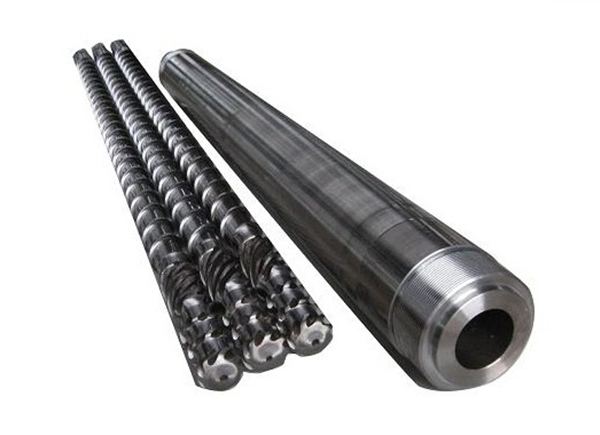+86-0580-8052088
+86-13505800981
No. 20, Liguan Road, Jintang Town, Dinghai District, Zhoushan, Zhejiang, China
1. Too high back pressure: assuming that the back press […]
1. Too high back pressure: assuming that the back pressure is set too high, the screw may not be able to meet the forward conveying melt pressure to defeat the back pressure of the back pressure, and the screw will rotate in a certain direction and will not retreat, which will do more work on the melt and significantly improve the melt temperature, and then have a bad effect on the product quality and cycle cycle.
2. Superheat or supercooling in the back part of barrel: at the back part of feeding section, the material forms a thin layer of molten polymer during heating and tightening. The molten film is pasted on the barrel. Assuming that there is no such thin layer, it is difficult for the granular material to be transported forward. It is necessary for the material in the feeding section to be heated to the critical temperature to form the key molten film. However, it is often too short for the material to stay in the barrel to make the polymer reach the temperature. This situation may be due to the equipment planning is too small, corresponding with a smaller barrel and screw. If the residence time is too short, the polymer will melt or mix insufficiently, and then the screw will slip or stop.
3. Barrel or screw wear: the same as the feeding section, when the resin melts in the screw tightening section, it adheres to the barrel wall. When the screw rotates, the material is sheared off the barrel wall and transported forward. Assuming that there is a wear zone on the screw and barrel, the screw can not be used to transport materials forward.
4. Hopper planning: correct hopper planning is the key to ensure the safe and stable delivery of materials. In general, new granular materials with uniform size and fineness operate well in square hoppers with abrupt contraction zones. However, this is not the case when participating in the recycling of materials. After being damaged again, the shape and size of the granular material are very different, which will affect the uniformity of the feed. Incoherent feeding means that the screw can not adhere to the uniform conveying pressure on the melt, resulting in slippage.
5. When processing hygroscopic materials: incorrect materials are boring, which will significantly reduce the viscosity of materials in the barrel and make it difficult for the screw to transport materials forward.
6. Check ring trouble: when the screw is rotating and plasticizing material, check ring should be in the front position, touch the fixed ring seat. Assuming that the check ring is in the backward state, or between the forward and backward state, the molten polymer will have resistance when passing through the notch between the check ring and the ring seat. If there is a problem with the false setting check ring, it should be replaced immediately.

Copyright:Zhoushan Tianxiang Screw Factory
China Conical Twin Screws ManufacturersTechnical Support: HWAQ